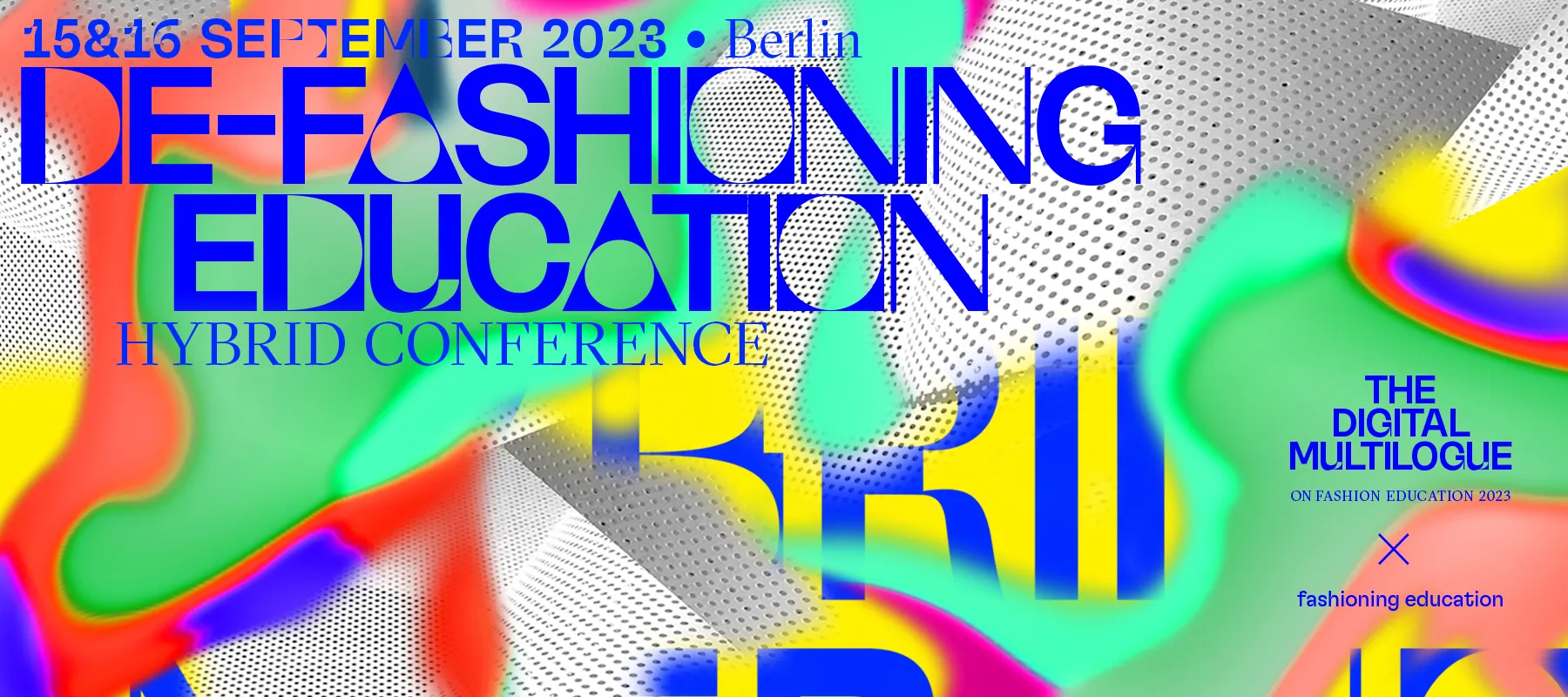
De-Fashioning Education
Location
Hybrid event:
Haus Bastian – Centre for Cultural Education
10 Am Kupfergraben Berlin, Berlin Germany, 10117
Dates
Submission period:
January 24, 2023 - 00:00 CET - May 21, 2023 - 23:30 CEST
Contact us
If you have any questions, please contact multilogue@fashioneducation.org